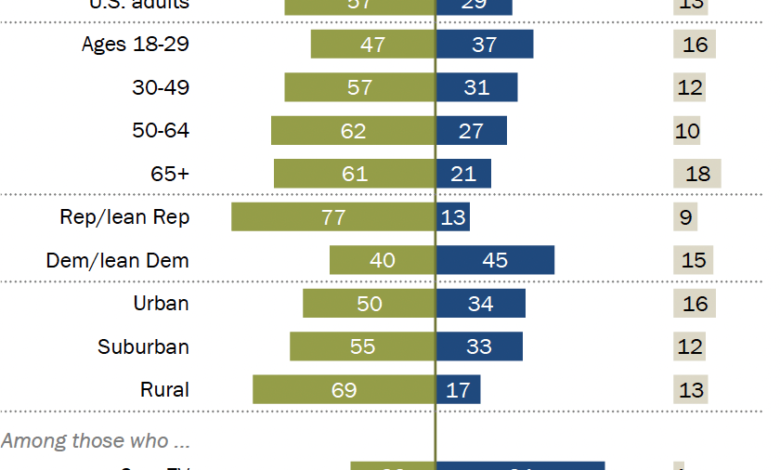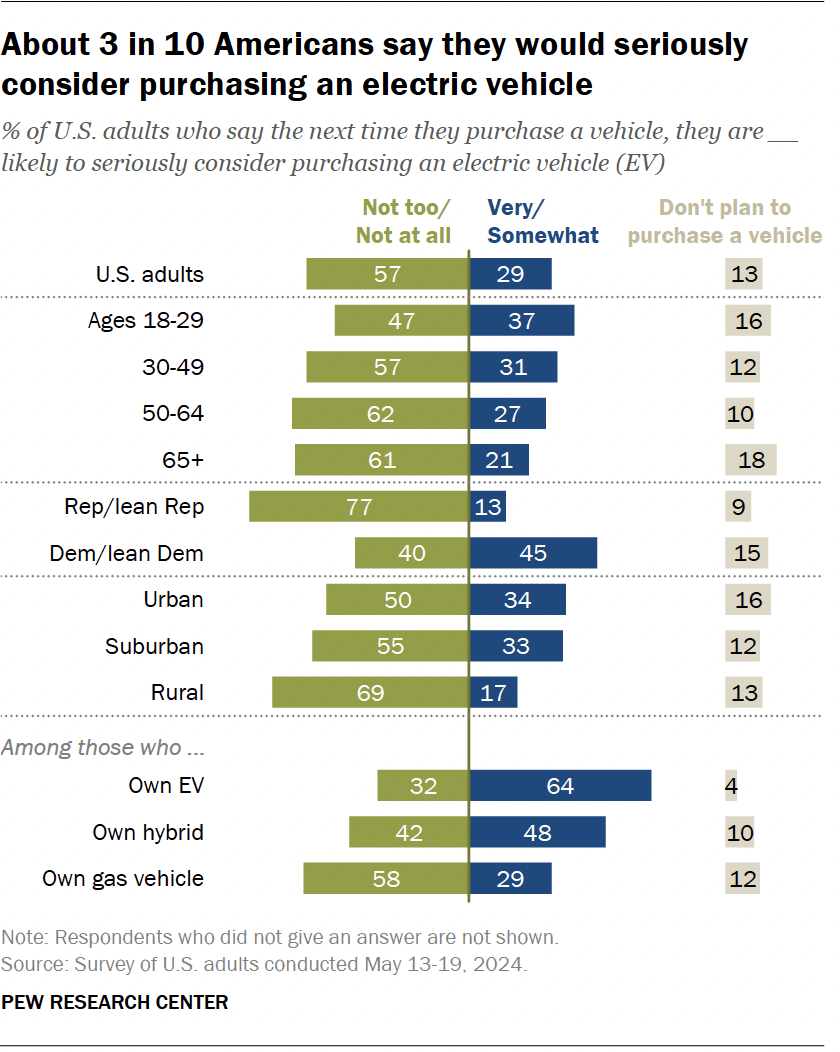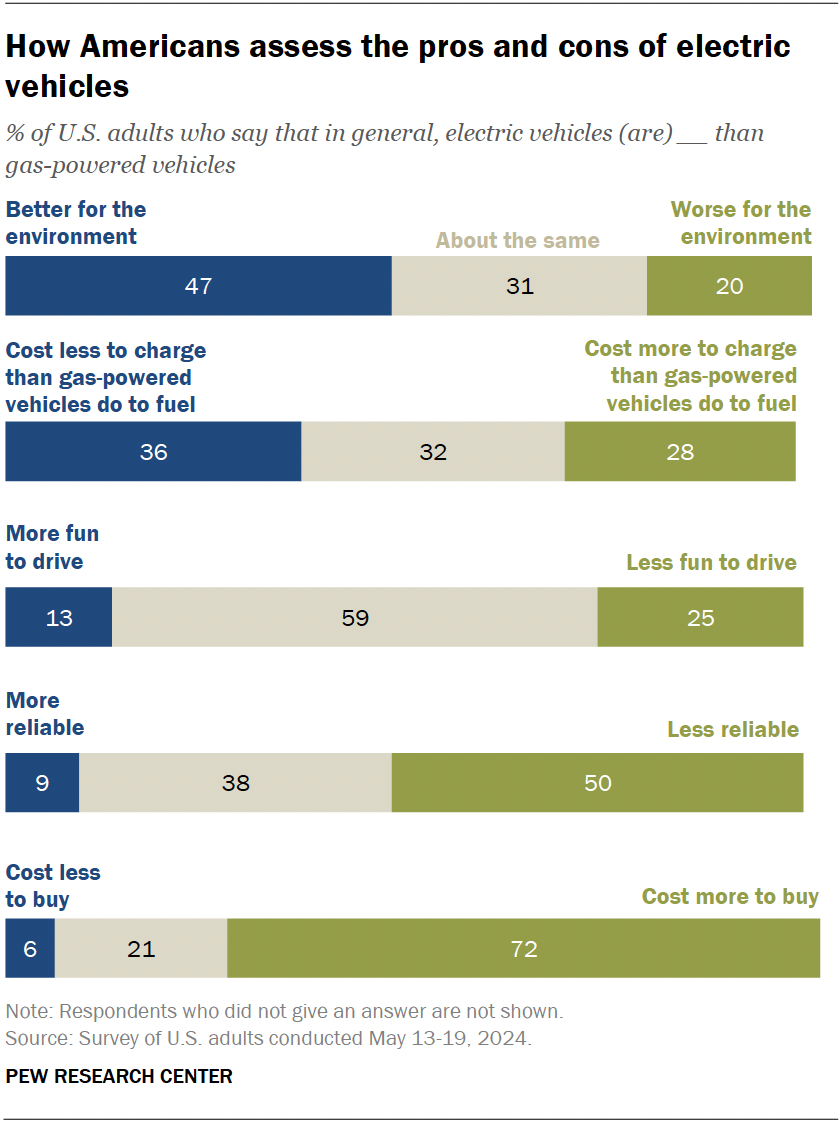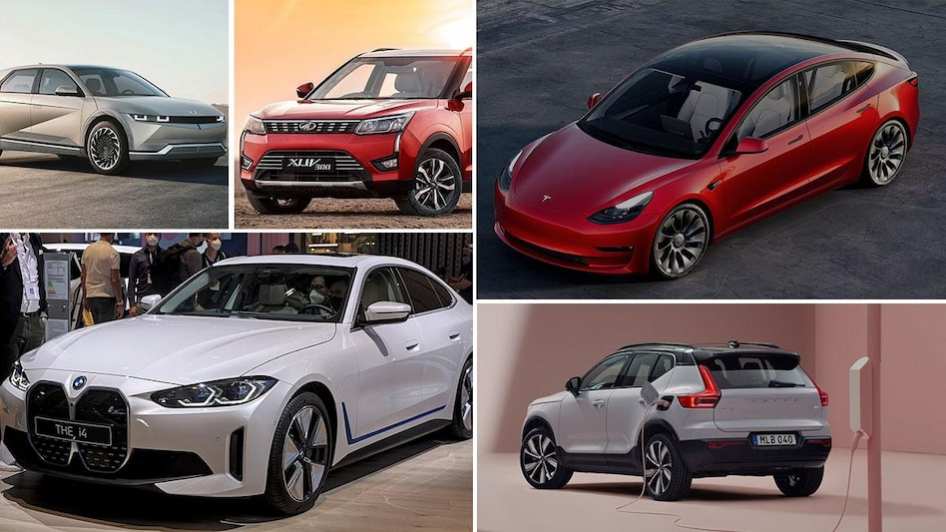72% of Americans Believe Electric Vehicles Are Too Costly: Are They Correct?

Electric vehicles may have a higher initial purchase price, but their lower operating costs can make them more affordable in the long run. Tax credits can help reduce the upfront expense, but it’s important to know which vehicles qualify. Since average costs may not reflect your individual situation, it’s essential to calculate your own costs and potential savings.
Electric vehicle (EV) sales have surged dramatically over the past five years, with a record 1.2 million Americans purchasing EVs last year, according to Kelley Blue Book. However, there remains significant confusion about the true cost of owning an electric vehicle.
This uncertainty is due in part to factors like auto insurance, maintenance, and fuel costs, which can vary widely depending on your location and driving habits.
Pew recently conducted a survey of nearly 9,000 people to gauge opinions on electric vehicles (EVs). The results showed that 72% of respondents believe EVs have a higher upfront cost, while 28% also think they are more expensive to fuel. There is some truth to these perceptions.
Many people choose electric vehicles (EVs) for their environmental benefits, but cost is also a key factor. While prices are gradually decreasing, EVs still tend to be more expensive than traditional gas-powered vehicles. According to the latest data from Kelley Blue Book, the average price of a new vehicle in July was $48,424, while EVs averaged $56,520.
However, some electric vehicles are eligible for tax credits of up to $7,500, which helps narrow the price gap. Not all EVs qualify for this credit, as the government aims to direct subsidies toward vehicles primarily made in the U.S. with materials largely sourced domestically.
When considering an EV, be sure to review the tax credit guidelines and use the Energy.gov tool to confirm if the model you’re interested in is eligible.










I’m sorry, but this is just terrible “journalism”. 72% said EVs cost more to buy. Claiming that is a belief they are too expensive is basically a flat out lie.
I would add that who would answer “no” to the question “would you seriously consider…. well, just about anything.”? To say ‘No” makes you seem a jerk. Of course a better question might be, “Have you considered buying an EV and decided against due to purchase price?” This still leaves open the question whether overall lifetime cost was considered, but it’s a start.
The operational costs are not necessarily lower with electric vehicles. Those costs will be heavily dependent on the drivers patterns and habits.
Electric cars are generally heavier cars than their similar sized gas counter parts. Tires will wear out faster, especially if you enjoy the acceleration, and Regen braking. The noise of the tires is much more apparent, and the quieter tires are more expensive than their gas counterparts.
Many places view the lack of gas taxes as a critical problem and charge significantly more expensive license plate fees for electric vehicles, or are instituting a per mile fee (some tracking required).
In locations with vehicle property taxes are assessed on the value of the vehicle, and set by dealer networks strongly opposed to direct sales model, you may find yourself paying taxes on an assessed value higher than you can buy a new car.
If you ever get damage on the car the number of approved shops in your state may be very low, and you may be without your car for months.
The insurance rates for these cars is much higher and likely factors in the limited number of vendors to supply parts, and approved shops to do the work.
Everything said for the three years I owned mine it was an excellent car around town, and a great experience. That said I certainly do not miss the range anxiety, the points of no return, wondering if the charger will work when I get there or if the copper cable has been stolen, or being harassed in the middle of the night behind some random empty shopping mall in a less than great area of town being unable to move the car without getting out and unplugging.
I wouldn’t buy an EV because to do so is to buy into the lie of AGW.